BRITAIN’S successful vaccine rollout is on course to defeat the feared Indian Covid variant and end lockdown on time, the PM and top boffins said last night.
In a huge boost to anxious Brits, scientists said hospital admissions in virus hotspot Bolton remain “fairly flat” despite the rise of the new strain.

Read our coronavirus live blog for the latest updates
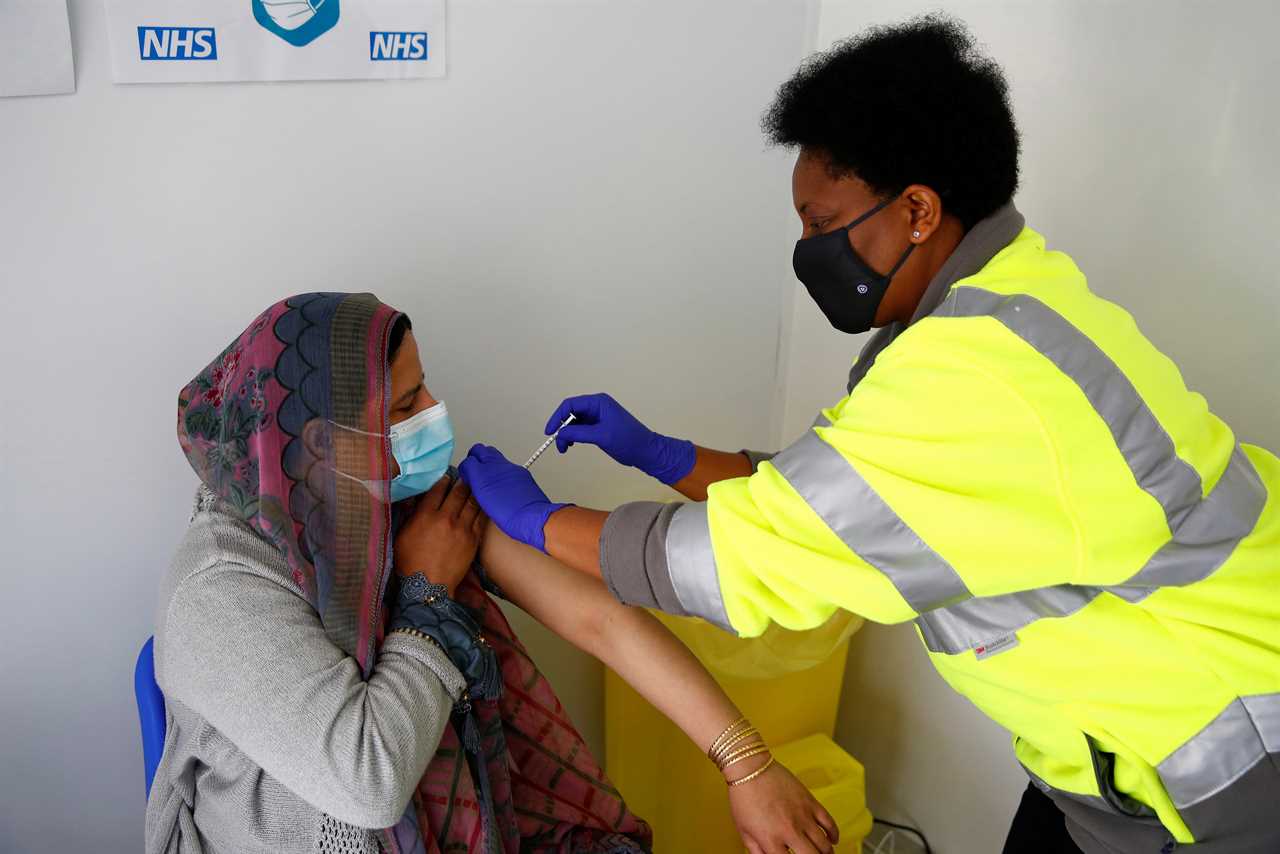
“Professor Lockdown” Neil Ferguson, said the development offered a “glimmer of hope”.
It came as the number of adults to have had at least one jab topped 70 per cent on the eve of a million Brits in their mid-30s being invited to get their first from today.
On top of that, world-first trials are being launched to identify the best booster jabs to beat different variants to keep Britain open this winter with a third vaccine dose.
Deputy Chief Medical Officer Jonathan Van-Tam told the No 10 briefing yesterday that the latest data suggested the Indian strain is significantly less contagious than previously believed.
Despite the Bolton outbreak, there were only 25 people in hospital with Covid there — up six from last week. And 90 per cent of them had not had both vaccines.
Boris Johnson told the Commons yesterday: “We have looked at the data again this morning. I can tell this House, we have increasing confidence that vaccines are effective against all variants.”
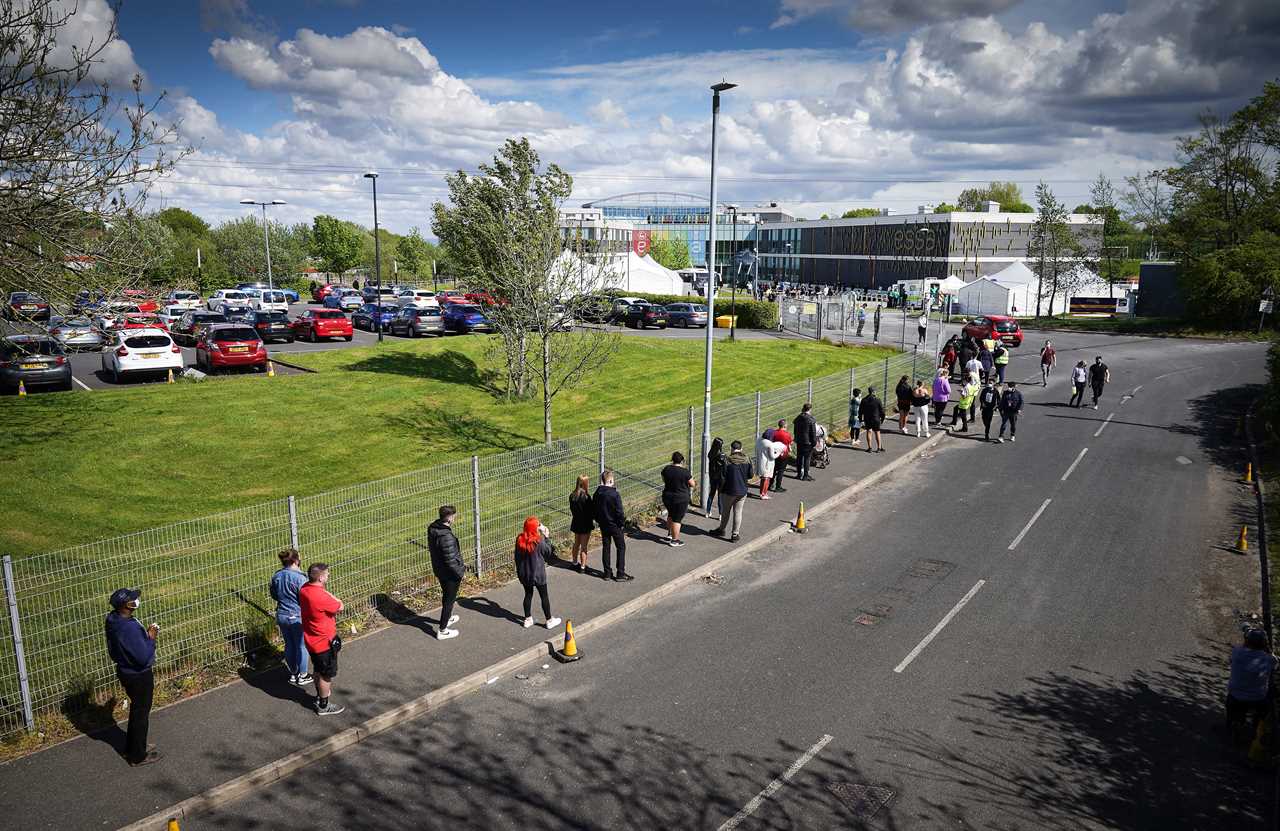
Health Secretary Matt Hancock, meanwhile, told the press conference that the time had arrived in the war on Covid to “carefully replace this shield of our restrictions, with the sword of our vaccination programme”.
He said indications were that a vaccine wall was now protecting the most vulnerable.
Hospital admissions have been kept down as a result despite the spread of the Indian strain in various hotspots across the country.
He added that most coronavirus cases were now in younger and unvaccinated people.
Mr Hancock said: “On the one hand that is actually a good sign as it implies the vaccine is working effectively, but obviously we don’t want to see a huge increase in the number of cases everywhere.
“We have said all along that we expect some increase in cases. Younger people, who are much more likely to be those yet to be vaccinated, are much less affected in terms of hospitalisations and deaths. That core fact about this virus underpins the strategy and road map we have set out.”
Professor Van-Tam said the nation was now in a “straight race” between the virus and the vaccine. He said health chiefs were launching an all-out effort to get the jab into millions of arms in lightning-quick time.
Professor Van-Tam added: “The NHS is doing everything it can to turbo-boost that. That is the challenge that’s ahead of us in the next two to three to four weeks — to make sure that we outrun the virus through a really vigorous pull-through on vaccine delivery.”
Gloomy Sage scientists had warned that the Indian variant could spread 50 per cent faster than current strains, threatening plans to lift lockdown.
But Professor Van-Tam said it was likely to be only around 25 per cent more transmissible, meaning the NHS should be able to cope with the predicted surge in cases.
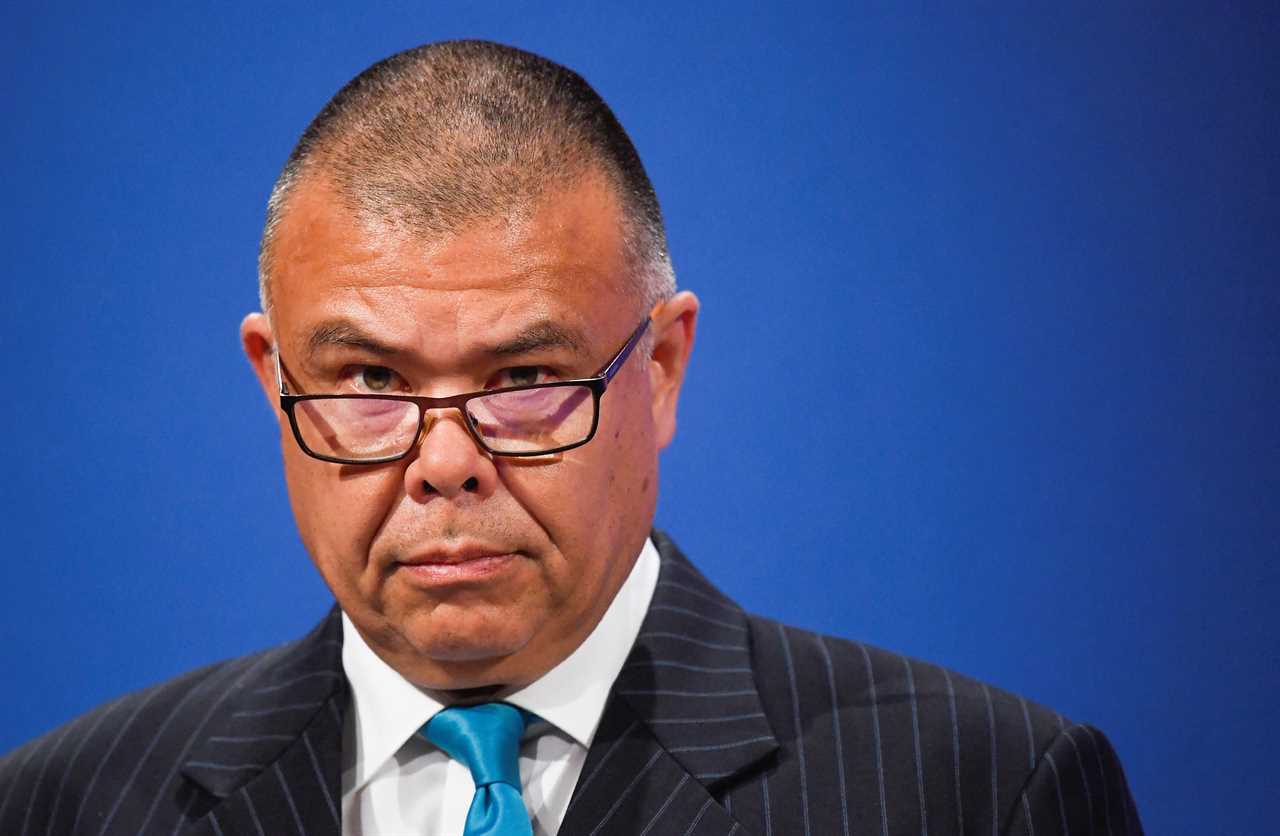
He repeated an earlier warning to Brits not to “tear the pants” out of their new freedoms.
Instead he urged caution and said the time was coming for the public to use their own judgment rather than relying on government rulings.
He said: “The Government has given people freedoms to start to make these judgments.
“I understand we can’t live for years and years on end with rules. People will have to learn to manage these risks from Covid for themselves because this is not going to go away in the short term, medium term and probably the long term.”
He said transmissibility of the new variant was the “million dollar question”.
Professor Van-Tam added: “Scientists are sure that this virus is more transmissible than the strain that it is beginning to replace, which is the old Kent B.117 strain.
“We have a credible range that goes from a few per cent more transmissible through to 50 per cent more transmissible. I think most people feel it’s going to be somewhere in the middle but it is just too early.”
More information is expected next week. Professor Ferguson, who got his nickname after his doomsday predictions plunged Britain into restrictions in March last year, explained why he saw hope.
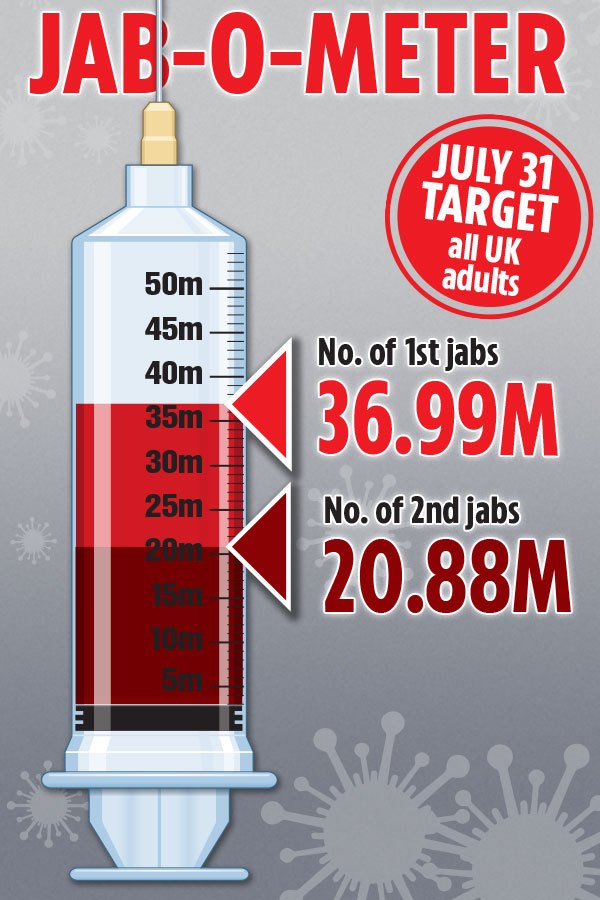
He said: “Whilst this variant does still appear to have a significant growth advantage, the magnitude of that advantage seems to have dropped a little bit with the most recent data, so the curves are flattening a little.”
Dr Jenny Harries, chief executive of the UK Health Security Agency, said the battle against the Indian variant was “not a game lost”.
She said: “We’re looking continuously to see if we are getting increased hospital admissions, and if there are any associated fatalities. Actually we are not seeing that at the moment . . . we’re seeing a fairly flat level of admissions.”
Meanwhile, thousands of fully vaccinated adults will take part in the trials to pinpoint the most effective booster injections to combat various Covid strains, so keeping the country open.
They will test one of seven vaccines to see which works best as parts of efforts to ratchet up protection.
The pioneering study will help shape the autumn booster programme and “future-proof” the UK from a killer winter wave.
Mr Hancock said that British scientists were seeking the perfect combination towards “keeping us safe for the long term”.
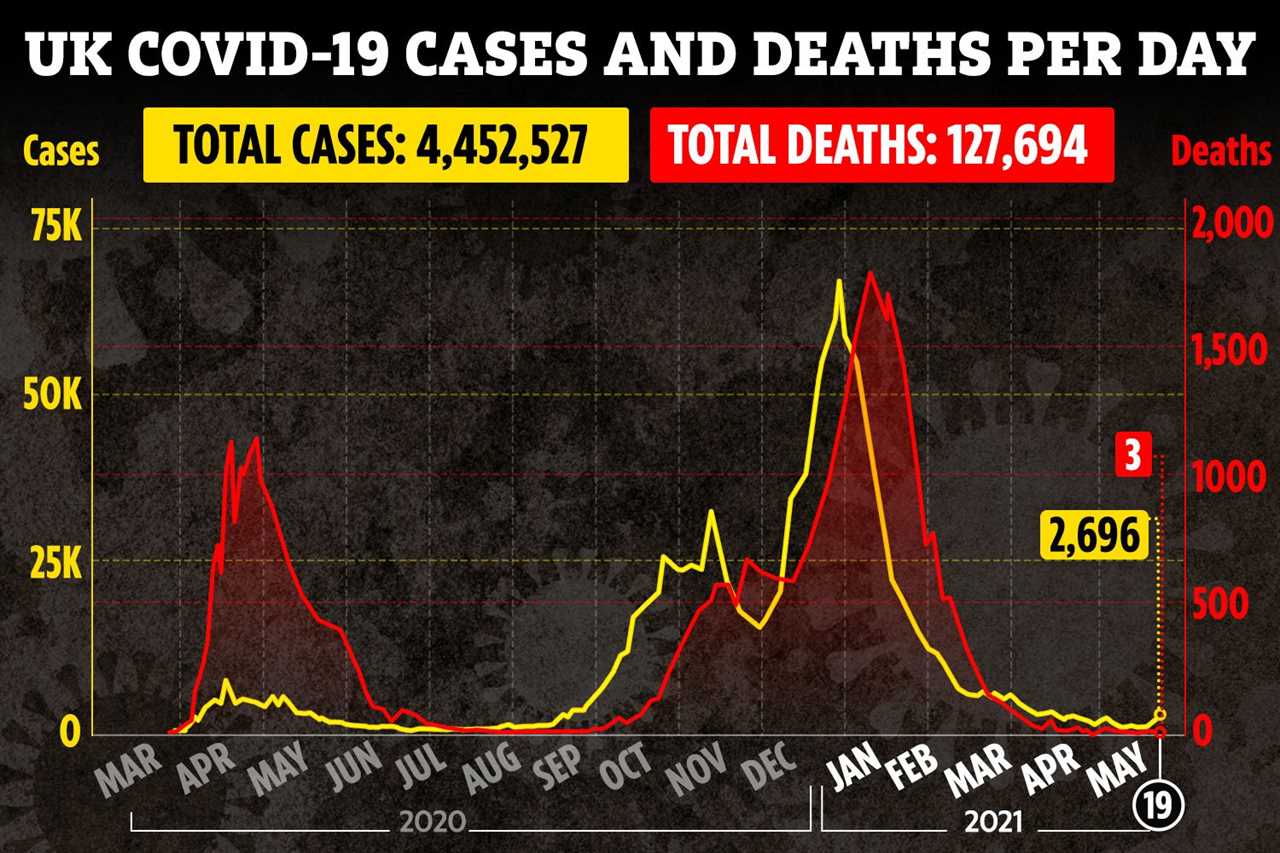
Nearly 2,900 fully vaccinated over-30s are being recruited to take part in the trial across 18 NHS sites, with the first boosters being injected early next month.
Those taking part will get one of seven shots of the Pfizer, AstraZeneca, Moderna, Novavax, Janssen, Valneva and Curevac jabs, or a dummy dose.
And from today, 34 and 35-year-olds will be eligible for their first shot. The vaccination blitz is expected to extend to the early-30s later this month.






